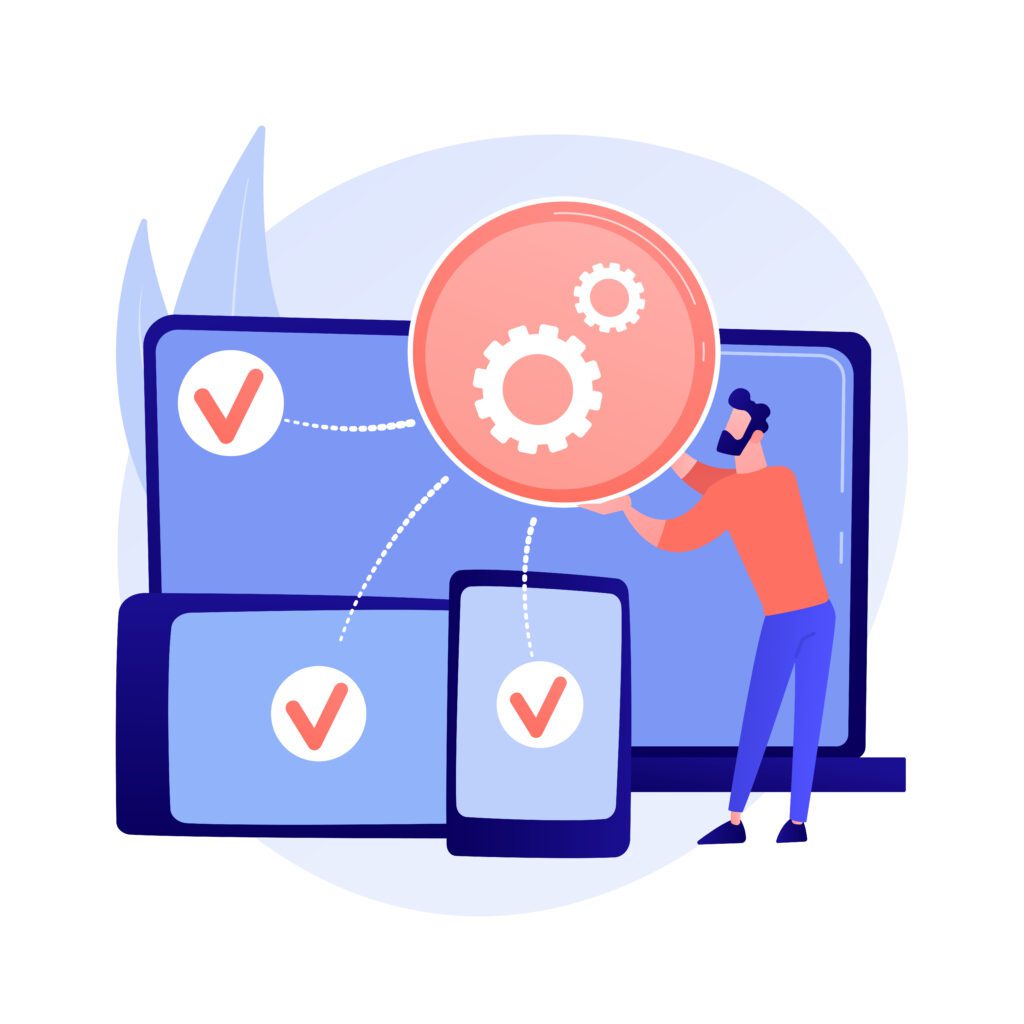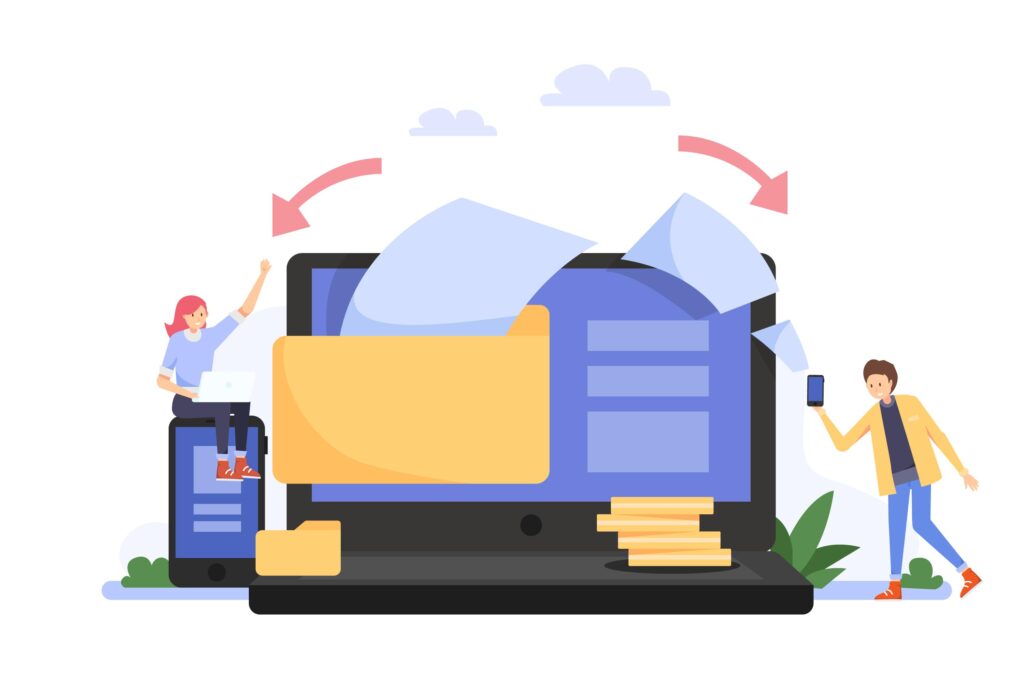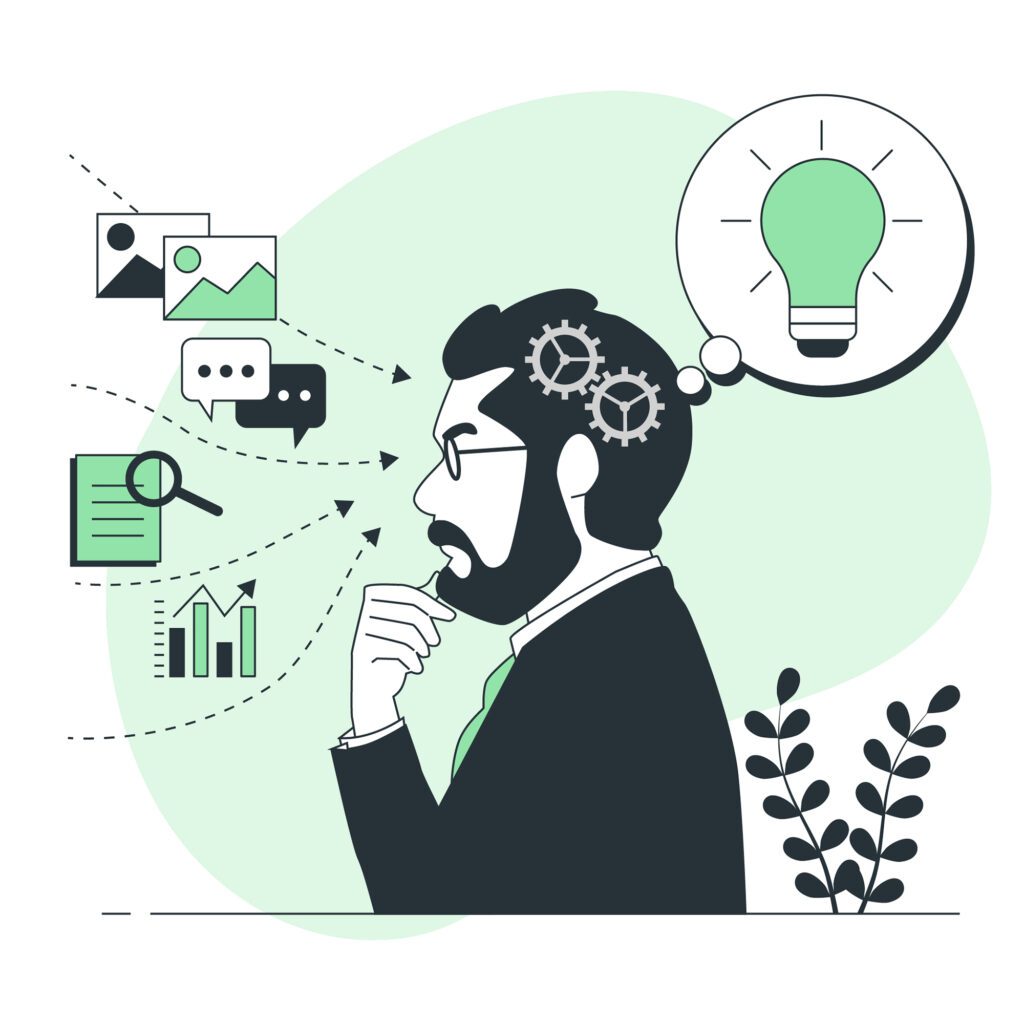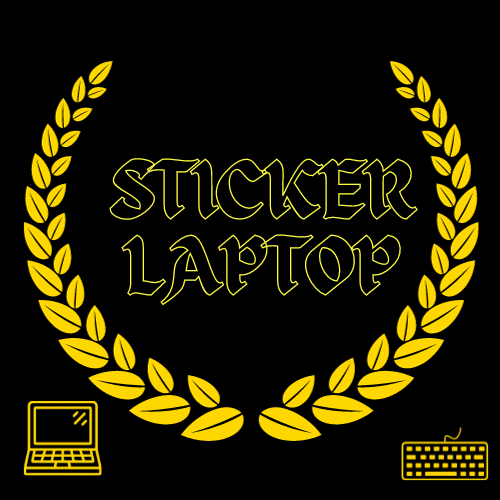Our everyday lives in the digital age are mostly dependent on computers and mobile devices, every of which runs a different operating system. Mobile platforms such as tablets and smartphones appear to be different from desktop PCs. Nonetheless, we see a growing confluence of these two realms as technology advances. This article of how are desktops and mobile operating systems similar explores the commonalities between desktop and mobile operating systems, showing the increasing convergence of these hitherto distinct domains.
Table of Contents
The Evolution of Operating Systems
For moving to the answer of how are desktops and mobile operating systems similar, let’s look into it’s breif first. Since their creation, operating systems have advanced significantly. Consider them the computer or mobile device’s brains. They were rather rudimentary in the beginning, mostly managing hardware resources and other simple duties. But now, they’ve developed into intelligent software with an intuitive UI in addition to managing your device.
You may interact with your device more easily with these interfaces, also referred to as graphical user interfaces, or GUIs. Desktop and mobile operating systems have improved user experience through feature integration and mutual learning over time. Thus you are reaping the benefits of years of operating system progress each time you use your desktop, laptop, or smartphone.
User Interface and Navigation

Whenever you switch on your device, what appears on your screen is the user interface (UI). It has windows, menus, and icons. It serves as all of your controls, just like your car’s dashboard. Operating systems for desktops and mobile devices have deliberately worked to create UIs that are easy to use and intuitive.
Your search for and use of programs and settings should be made as simple as possible. Consider the user interface (UI) as the link that connects you and your gadget. So, the user interface (UI) is what makes everything happen, either you’re selecting, tapping, or swiping.
How Are Desktops and Mobile Operating Systems Similar In Multitasking Capabilities

Consider yourself in the kitchen, needing to respond to messages and keep track on a recipe app. The capacity to accomplish both of these tasks at once is known as multitasking. Operating systems for desktops and mobile devices now come with multitasking functions, which essentially let users manage several tasks at once. It greatly enhances productivity.
You can operate multiple windows simultaneously on your desktop, such as an email client, word processor, and web browser. Even mobile devices have caught up, enabling smooth app switching. You’ll be able to accomplish more without having to open and close apps all the time.
Software Compatibility

Moving forward to how are desktops and mobile operating systems similar, let’s discuss the software compatibility.The brains and heart of your gadget are its software. Software gives powers to your gadget, be it an internet browser, a picture supervisor, or a game application. Desktop and mobile software used to be relatively distinct from one another a few years ago. You would have distinct apps on your smartphone and computer.
However, programmers are increasingly producing cross-platform software, so you can employ identical apps on both desktop and mobile devices. This is a legendary. Whether you’re at your PC or using a mobile device, it guarantees that you may access your preferred program.
File Management

Although it may not sound glamorous, file management is really crucial. It resembles how your digital life is arranged. User-friendly methods for creating, editing, and organizing files are available in both desktop and mobile operating systems.
It might be compared to organizing your computer workstation. Arranging your documents is fundamental for keeping steady over things and rapidly finding what you really want, whether you’re putting away records on the PC or pictures on your cell phone.
System Updates

Installing system updates is similar to giving your car a tune-up. They maintain the security and seamless operation of your operating system. Regular updates are provided for both desktop and mobile operating systems, and they provide more than just new functionality.
They also strengthen security, resolve problems, and boost general performance. Hence, updating your gadget when you receive that message is similar to taking your car to the mechanic to keep it in good working order. Maintaining an updated system is crucial for optimal performance and safeguarding your gadget against possible security flaws.
Security Measures
In the world of desktop and mobile operating systems, security is paramount. These systems offer several levels of security, just like shutting your doors at home. They have functions like user authentication, encryption, and firewalls.
Consider it as the round-the-clock security staff for your device. These precautions protect your privacy and data. They guard against unwanted access and malicious software on your device. You may thus utilize apps, shop online, and surf the web with comfort knowing that your smartphone is keeping an eye on you.
Hardware Variations
Each gadget, be it a mobile phone or a desktop computer, has its own hardware. Desktops are available in a range of sizes and forms, from huge gaming rigs to compact, stylish all-in-one PCs. Conversely, mobile devices are available in a variety of models with a broad range of functions and sizes.
The variety of hardware available meets the demands and tastes of different users. You can select a gadget that meets your individual demands, whether you’re a content creator, gamer, or mobility-phobe. It’s similar to having several different tools in the tool bag, each intended for a specific purpose.
Read more Laptop Weight: A Guide to Finding the Perfect Balance
App Stores and Marketplaces

App stores and marketplaces are available on desktop and mobile operating systems alike. These resemble online stores where you may download and set up a variety of programs and apps. These stores have everything you might possibly need, including instructional materials, entertainment apps, and productivity tools.
They make it very simple to add new apps and improve the functionality of your device. It’s similar to purchasing precisely what you need from a store to improve the functionality of your device.
Customization Options

Operating systems are a major business when it comes to personalization. It’s similar to picking out a car’s color or designing your space. With desktop and mobile operating systems, you may personalize your device to make it unique to you. Wallpapers, themes, icons, and even the arrangement may all be changed. In this sense, your gadget grows to be a part of you. It represents your tastes and sense of style and is more than just a tool.
Digital Assistants

Most likely, you’ve aware about virtual assistants like Google Assistant, Cortana, and Siri. They are similar to your tech-savvy, always-helpful friends. They carry out activities for you, reply to voice commands, and provide answers to queries. Your life will be easier because these helpers are now a standard feature of desktop and mobile operating systems. Without typing a single word, you may use them to send messages, create reminders, and search information. It’s similar to having a personal assistant at your disposal.
Cross-Platform Integration
The increasing integration of desktop and mobile operating systems is one of the most fascinating advancements. Imagine being able to pick up where you left off on a desktop task and carrying it over to your mobile device with ease.
Users can switch between several devices thanks to this convergence without losing work or data. It’s as simple as having a global control panel for your technological life, allowing you to stay productive and connected on all of your devices.
Read more AMD Ryzen vs Intel Core i7: Battle of the Processors
Accessibility Features
The accessibility of desktop and mobile operating systems has advanced significantly. Screen readers, text-to-speech options, and magnification are among the functions they provide. With the help of these accessibility features, everyone—disabled or not—can use gadgets with ease. It’s like unlocking a universe of opportunities by enhancing accessibility and usability of technology.
Conclusion
Taking into account about How Are Desktops and Mobile Operating Systems Similar, desktop and mobile operating systems have developed progressively comparable throughout the long term. They share normal elements like UIs, multitasking capabilities, programming similarity, and that’s only the tip of the iceberg. This intermingling benefits clients by offering a steady encounter across various gadgets. So till now you must have got the answer for how are desktops and mobile operating systems similar. So all the best!
FAQs

1. Are desktop and mobile operating systems built on the same technology?
No, although they are based on distinct technology, they have similar functions and user interfaces.
2. Can I use the same apps on both my desktop and mobile device?
The ability to use the same programs on desktop and mobile platforms is made feasible by the abundance of cross-platform developers.
3. How do desktop and mobile operating systems differ in terms of security?
Security is top priority for both, but because mobile operating systems are portable, they often place more emphasis on features like device encryption and remote wiping.
4. What are the major differences between desktop and mobile operating systems?
The hardware, form factor, and use cases are where the main distinctions are found. Mobile devices are portable and made for use on the go, whereas desktop computers are more powerful and ideal for complicated activities.
5. What is the future of operating systems, considering their increasing similarities?
More seamless desktop and mobile operating system integration is probably in store for the future, which will facilitate user switching between devices while preserving a consistent experience.

